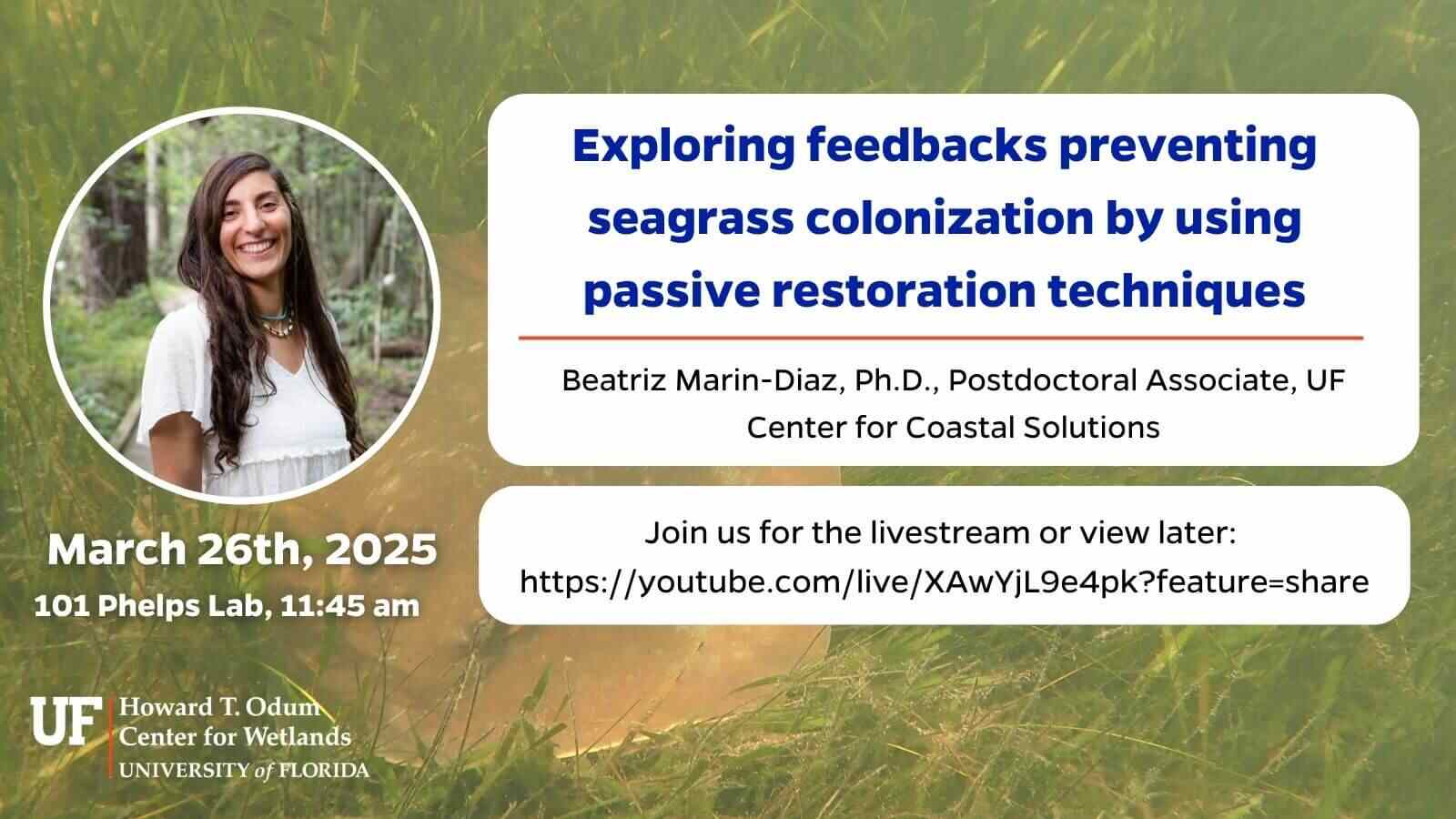
Beatriz Marin-Diaz, Ph.D., Postdoctoral Associate, UF Center for Coastal Solutions
Join us for the livestream March 26th, 11:45am ET: https://youtube.com/live/XAwYjL9e4pk?feature=share
(Please visit our YouTube channel main page for the stream if there are any issues with the direct link.)
ABSTRACT
Seagrasses are foundation species offering key ecosystem services such as habitat provision, carbon sequestration, and coastal protection. However, they are declining worldwide, and natural recovery once the system has shifted into an alternative unvegetated state does not always occur, even if the main cause of decline has been controlled. In this seminar, we will explore positive feedbacks that can prevent seagrass establishment in the context of passive seagrass restoration without using transplants. We will present the results of a field experiment, where we tested whether stingrays induce a positive feedback in unvegetated areas that prevents seagrass re-establishment, where their foraging disturbs the sediment which maintains bare areas that are preferentially colonized by burrowing shrimp which in turn attracts additional stingray feeding activity. Bamboo exclosures were installed to prevent stingray bioturbation within bare areas and on the border of vegetated areas and were monitored to assess whether seagrass naturally colonized without the need of transplants. We found that seagrass was able to establish within the exclosures; however, these newly established shoots did not persist. We will discuss how ghost shrimp bioturbation, abundant only in the bare areas, may have contributed to this outcome.
Overall, we conclude that bamboo exclosures could be used as a biodegradable alternative to jumpstart passive restoration efforts by facilitating initial seagrass establishment before they naturally decompose. However, it may be insufficient for seagrass persistence if burrowing shrimp are active in the area. We suggest that an understanding of sediment turnover and burial potential is necessary prior to restoration attempts, and that innovative interventions may be required where different factors limit establishment and persistence of a targeted species.
BIO
Beatriz Marin-Diaz, Ph.D., is a postdoctoral researcher at the University of Florida, working with Andrew Altieri, Ph.D., in the Department of Environmental Engineering Sciences. She earned her Ph.D. in Ecology and Nature-Based Coastal Protection from the Netherlands. Marin-Diaz’s research focuses on seagrass restoration and coastal resilience, particularly understanding the factors driving seagrass retreat. She is involved in the “Enhancing Tyndall Air Force Base Coastal Resilience through Nature-Based Solutions” project, funded by the Department of Defense REPI Challenge Program and RESTORE Bay County. This work is conducted in collaboration with The Nature Conservancy, Jacobs Engineering, and the U.S. Naval Research Laboratory. Her research supports the planning, permitting, and design of future seagrass restoration and shoreline enhancement projects at Tyndall Air Force Base.
POSTCARD
